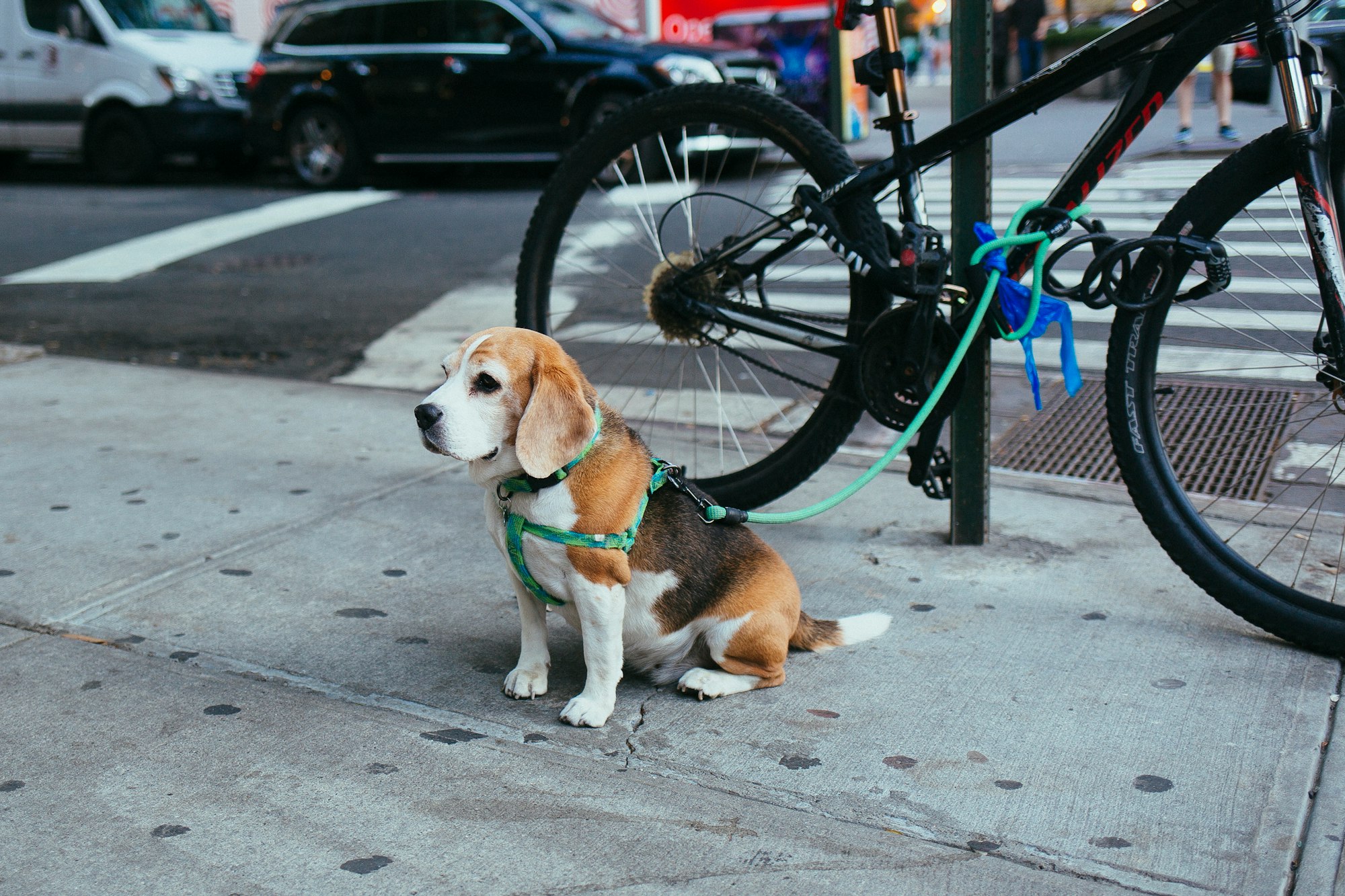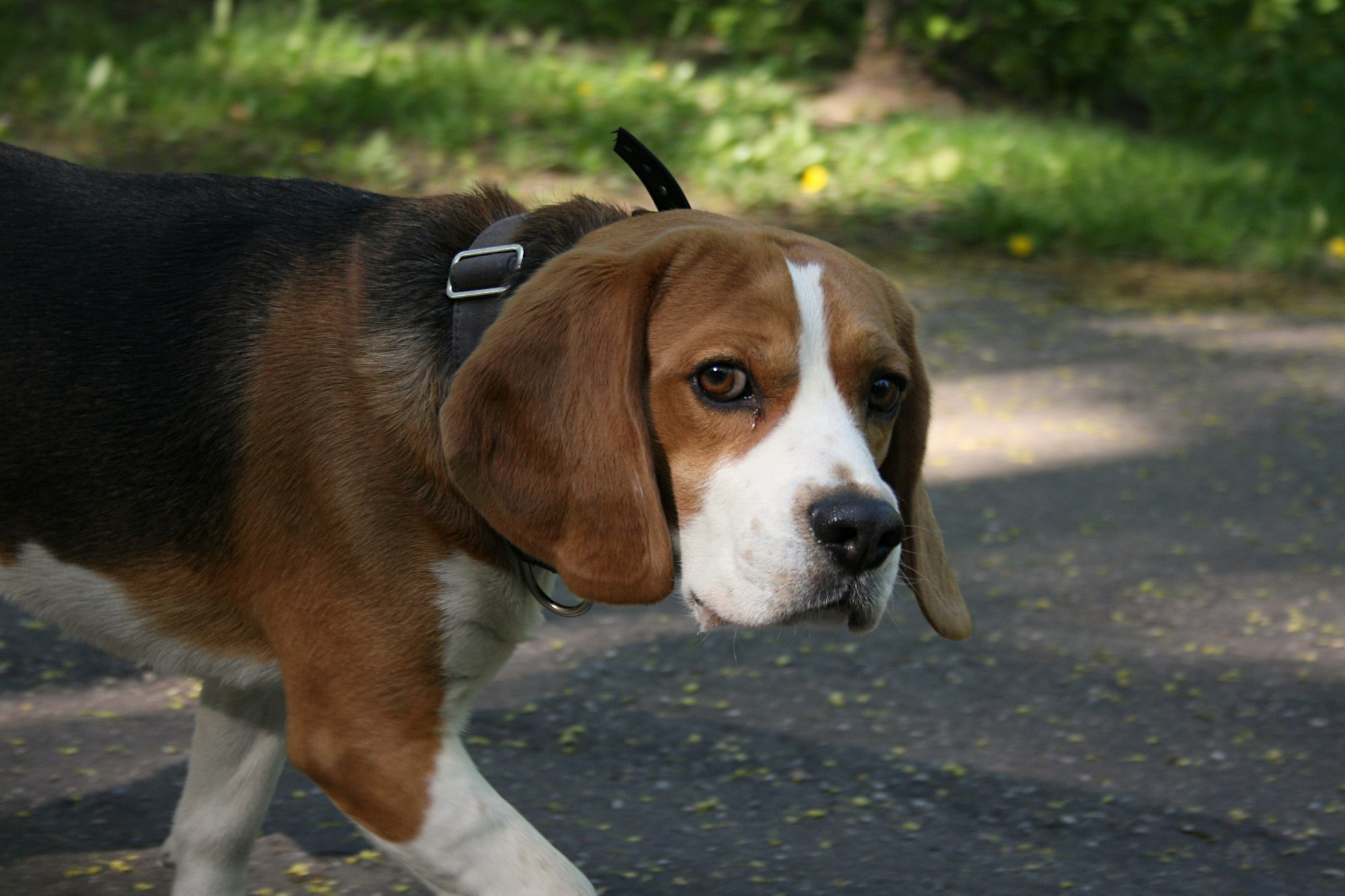Navigating the world of pet ownership can be a complex task, especially when it comes to choosing the right breed. Among the numerous breeds available, Pocket Beagles have charmed many with their compact size, amiable temperament, and spirited energy.
However, these tiny dogs have specific needs and quirks that future owners need to understand before making the commitment. This comprehensive guide dives into the essential insights about Pocket Beagles, exploring their history, characteristics, training needs, and health considerations.
We also introduce a revolutionary tool – the Fi dog collar – that can significantly enhance your experience as a Pocket Beagle owner. Whether you're a potential Pocket Beagle owner or simply a dog enthusiast, this article will provide you with valuable insights into the enchanting world of Pocket Beagles.
Understanding Pocket Beagles
"Diving into the world of Pocket Beagles" is like embarking on an exciting journey with a tiny, four-legged friend. Pocket Beagles, also known as Miniature Beagles or Teacup Beagles, are all the rage in the canine universe.
As potential owners, understanding their unique qualities, and knowing what to expect, can significantly enhance your experience with these adorable pups. Let's plunge into the fascinating world of Pocket Beagles.

Pocket Beagle Overview
Originally bred for hunting in packs, these small hounds are popular due to their compact size and friendly demeanor.
These tiny hounds are known for their keen sense of smell, trailing abilities, and exceptional friendliness. While they look similar to the standard Beagles, they are smaller in size, typically ranging from 7 to 12 inches in height.
Pocket Beagle Personality
Pocket Beagles have an infectious personality.
They are known for their playful, curious, and outgoing nature. They are social butterflies and love to spend time with their human family and other animals. Being intelligent dogs, they enjoy stimulating activities, including those involving puzzle toys.
Pocket Beagle Care
Just like any other dog breed, Pocket Beagles require regular care to ensure their health and happiness. Regular grooming is a must, including brushing their teeth, trimming their nails, and checking their ears for any sign of infection.
Your Pocket Beagle's diet is crucial too. Providing a balanced diet helps maintain their weight and overall health. Consulting a vet about your dog's diet is beneficial and addresses the question of "how often vet" visits are needed.
Exercise is crucial for Pocket Beagles. Despite their size, they are energetic dogs and need ample opportunities to burn off their energy. The question of "how much exercise" a Pocket Beagle needs varies, but on average, at least 1 hour of exercise per day is recommended.
Playing with a flirt pole is a great way to exercise your Beagle. Not only will it help your dog burn energy, but it's also a fun and engaging activity for both you and your pet.

Training a Pocket Beagle
Training a Pocket Beagle can be both a challenging and rewarding experience. Due to their independent nature, consistency and patience are key.
Reward-based training methods tend to work well with this breed. They respond well to positive reinforcement, like treats and praise.
Pocket Beagle Health
While Pocket Beagles are generally healthy dogs, they are susceptible to certain health conditions. Be aware of the potential for allergies, epilepsy, and hypothyroidism. Regular veterinary check-ups can help catch any potential health issues early.
Pocket Beagle Adoption and Cost
When considering adopting a Pocket Beagle, it's important to research and reach out to reputable breeders. They often provide valuable information about the breed and specifics about the puppy you're considering.
A Pocket Beagle can cost anywhere from $500 to $1500, depending on factors like the breeder's reputation, the puppy's parents, and the demand in your area.
It's important to remember that the initial cost is just the beginning. You'll also need to budget for other costs like food, grooming, regular vet visits, and, importantly, a microchip. Microchipping your dog is a simple procedure that could help you find them if they ever get lost.
Pocket Beagles and Your Lifestyle
Before bringing a Pocket Beagle into your home, it's important to consider your lifestyle. These energetic dogs thrive in households that can provide them with ample time, attention, and play. Pocket Beagles' sociable nature makes them an excellent choice for families with children or other pets. However, they can become anxious and destructive if left alone for extended periods.

Training Your Pocket Beagle: A Rewarding Challenge
Training your Pocket Beagle can be an exercise in patience, but with the right approach, it can be a rewarding and bonding experience. Pocket Beagles are intelligent and quick learners, but they can also be stubborn at times. Remember to keep training sessions short, fun, and engaging to hold their interest.
Using a variety of techniques can be beneficial. For example, crate training can help with housebreaking and provide a safe haven for your Pocket Beagle, while obedience training can help manage their high energy levels and propensity for mischief.
Size Matters: Understanding Pocket Beagles’ Size and Appearance
One of the key distinguishing characteristics of Pocket Beagles is their size. They usually stand about 7 to 12 inches tall at the shoulder, making them perfect companions for those living in smaller accommodations or apartments. However, it’s essential not to underestimate their exercise requirements due to their size.
Pocket Beagles have a sturdy, compact build. They have short legs, an adorable face with expressive eyes, and a soft, dense double coat that comes in a variety of colors and patterns. The most common colors are tricolor (black, tan, and white), red and white, and lemon and white.
A Deep Dive into Pocket Beagles' History
Pocket Beagles have a fascinating history. They were initially bred in England for hunting small game. The 'pocket' in their name was coined due to hunters carrying these dogs in their saddlebags or 'pockets'. Queen Elizabeth I was known to have a pack of Pocket Beagles, fondly referred to as her 'Singing Beagles' due to their melodious howl.
Over time, the demand for these tiny hunters declined, and they almost became extinct. However, thanks to the efforts of dedicated breeders, Pocket Beagles have made a remarkable comeback and are now a beloved pet breed worldwide.
Socializing Your Pocket Beagle
One of the most important aspects of raising a Pocket Beagle is socialization. As a breed, Pocket Beagles are friendly and sociable, but early and consistent socialization ensures that they grow up to be well-rounded dogs. Introduce them to a variety of people, sights, sounds, and experiences, particularly during their puppyhood.
Socialization can also help curb potential behavioral problems. For instance, Pocket Beagles have a strong prey drive and might chase after smaller animals. Early socialization can help manage this instinct.
Owning a Pocket Beagle: Pros and Cons
Every breed comes with its own set of advantages and disadvantages, and Pocket Beagles are no exception.
Pros:
- They are friendly, making them great family pets.
- Despite their size, they are sturdy and durable.
- They are known to be good with kids and other pets.
Cons:
- They require plenty of exercise to avoid becoming overweight.
- They can be stubborn, which can make training challenging.
- They don't like being left alone for long periods.
Owning a Pocket Beagle can be a fulfilling experience, but it's essential to remember that they require time, patience, and plenty of love. With the right care and training, your Pocket Beagle can be a loving and loyal companion for years to come.
The Role of FI Dog Collars in Caring for Your Pocket Beagle
In this technologically advanced age, smart devices have become essential tools in pet care. One such innovative product is the Fi dog collar.
Fi dog collars are state-of-the-art, smart dog collars that serve multiple functions. They can significantly enhance your experience as a Pocket Beagle owner by offering features like GPS tracking, activity monitoring, and safety alerts.
Fi Collars and Exercise
Pocket Beagles, with their high energy levels, require regular exercise. The Fi collar comes with an inbuilt activity tracker, helping answer the question of "how much exercise" your dog is getting.
It allows you to monitor your Pocket Beagle's daily activity levels and compare it with dogs of the same age and breed. This feature is invaluable, ensuring your Pocket Beagle gets the right amount of exercise and stays fit and healthy.
Safety with Fi Collars
Pocket Beagles, given their curious and explorative nature, can occasionally wander off. This is where a Fi dog collar's GPS tracking feature becomes essential. It provides real-time tracking, allowing you to keep tabs on your Beagle's whereabouts, ensuring they're safe.
In addition to GPS tracking, the Fi collar sends escape alerts to your smartphone if your dog leaves a designated safe area. Having your Pocket Beagle wear a microchip along with a Fi collar gives an extra layer of protection.
Fi Collars: An Aid in Training
Training your Pocket Beagle can be quite a task given their spirited nature. Here, the Fi collar’s activity tracking can be useful. You can monitor their energy levels during training sessions and adjust them accordingly.
Playing with a flirt pole while having the Fi collar on can provide you insights on your pet’s peak activity times, helping you schedule training sessions more effectively.
Caring for Your Pocket Beagle's Health with Fi Collars
Pocket Beagles are susceptible to certain health issues, including obesity and allergies. The Fi collar's activity monitoring can help prevent obesity by ensuring they get enough exercise.
Further, a sudden change in your Pocket Beagle's activity level might be an early sign of health issues. Regular vet check-ups are critical, but the Fi collar provides additional peace of mind, allowing you to monitor any potential health concerns.
Enhancing Socialization with Fi Collars
Socialization is vital for your Pocket Beagle. The Fi collar can enhance this process by allowing you to monitor how your dog reacts to different environments.
You can take your Pocket Beagle to different socialization activities, monitor their heart rate and activity, and understand better what experiences they find stressful or enjoyable.
Frequently Asked Questions
Q1: What is a Pocket Beagle?
A1: A Pocket Beagle is a smaller version of the standard Beagle. They typically stand about 7 to 12 inches tall and are known for their friendly and sociable nature.
Q2: How much exercise does a Pocket Beagle need?
A2: Despite their small size, Pocket Beagles are energetic dogs that require at least an hour of exercise daily. This can include walks, playtime, or interactive games with a flirt pole or puzzle toys.
Q3: Are Pocket Beagles prone to any specific health issues?
A3: Pocket Beagles are generally healthy dogs but can be susceptible to certain health conditions, including allergies, hypothyroidism, and epilepsy. Regular vet check-ups and monitoring their health with devices like Fi dog collars can help detect potential health issues early.
Q4: What is a Fi dog collar?
A4: The Fi dog collar is a smart collar that comes with a GPS tracker and activity monitor. It can track your dog's location in real-time, monitor their activity levels, and send alerts if they wander out of a designated safe area.

Q5: How can a Fi dog collar help in training a Pocket Beagle?
A5: A Fi dog collar can help monitor your Pocket Beagle's energy levels during training sessions, enabling you to adjust the intensity and duration of training accordingly. It can also help identify their peak activity times, which could be the most effective times for training.
Q6: How much does a Pocket Beagle cost?
A6: The cost of a Pocket Beagle can range from $500 to $1500, depending on various factors like the breeder's reputation, the puppy's lineage, and demand. However, remember to account for additional costs like food, grooming, vet visits, and essential tools like a microchip and a Fi dog collar.
Q7: How important is socialization for a Pocket Beagle?
A7: Socialization is crucial for a Pocket Beagle. Introducing them to a variety of people, sights, sounds, and experiences, particularly during their puppyhood, can help them grow into well-rounded and well-behaved dogs. A Fi collar can help monitor their reactions to different experiences, aiding the socialization process.
Conclusion:
In conclusion, Pocket Beagles, with their compact size, friendly nature, and energetic disposition, make excellent companions. As potential owners, understanding their needs for exercise, socialization, and training is crucial to their wellbeing. Recognizing the breed's susceptibility to certain health issues like allergies is vital for proactive care.
Using modern pet care tools like the Fi collar, which offers GPS tracking and activity monitoring, can greatly enhance your Pocket Beagle care experience. With this collar, you can keep tabs on their location, monitor their health, optimize their training sessions, and better understand their socialization needs.
Caring for a Pocket Beagle is undoubtedly a rewarding experience, as long as you're ready to offer them the time, patience, and love they require. In return, these tiny, melodious dogs will provide you with years of companionship, love, and joy.




